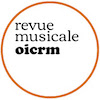Appel à contributions pour le projet de publication en ligne « In Search of the Beloved », dirigé par Jason Robinson et Priscilla Page, site web du UMass Fine Arts Center, octobre 2020-2021.
« Remarkably prolific, assiduously focused, and a creative intellectual who defied facile stereotypes and categories, Dr. Yusef Abdul Lateef (October 1920—December 2013) modeled an expansive life in music and the arts, only a small portion of which has received scholarly attention. By the late 1940s, Lateef was on tour with Dizzy Gillespie’s band, and later played with Cannonball Adderley, Charles Mingus, and Babatunde Olatunji. Known first as a prodigious saxophonist and flutist who emerged from the Detroit scene of the 1950s, by 1957 Lateef was recording as a leader, and his subsequent albums on Savoy, Prestige, Impulse!, Atlantic, and CTI Records, as well as his own YAL label, have had a profound influence on many musicians and listeners since their releases. Lateef earned a Ph.D. in Education in 1975 from the University of Massachusetts Amherst, with a dissertation entitled “An Overview of Western and Islamic Education,” and taught music at UMass and Hampshire College until his retirement in 2002. From 1981 to 1985 he was a senior research Fellow at the Center for Nigerian Cultural Studies at Ahmadu Bello University in Zaria, Nigeria, where he researched the Fulani flute. His work spans many fields including composition, improvisation, performance, ethnomusicology, visual art, and creative writing. In addition to numerous influential recordings and an extensive and wide ranging catalog of compositions, Dr. Lateef published several books of creative writing and research in music, his art work has been shown in galleries in Detroit, New York and Amherst, he received a Grammy in 1987, he was honored as an NEA Jazz Master in 2010, and he was an important member of the international Ahmadiyya Muslim community. Dr. Lateef’s view of music was considerably broader than any narrow understanding of “jazz”; in fact, he came to resent that label and instead preferred to describe his work in relation to the African American tradition of « autophysiopsychic music,” which he defined as “music from one’s physical, mental, and spiritual self.” »
Pour plus de détails, voir l’appel en ligne.
